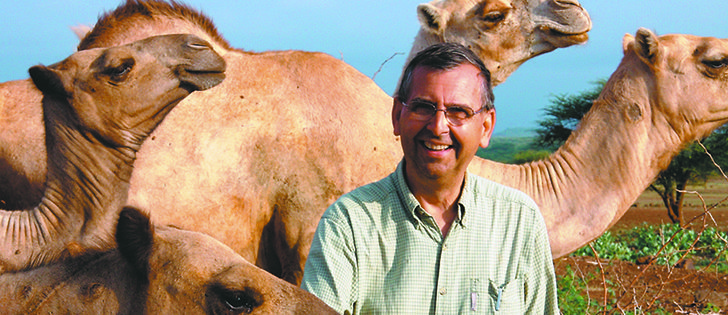Sauti Moja | Canadian charity helps rural African women improve health, living conditions
Retired agronomist Tim Wright speaks for the vulnerable in Africa.
As executive director of the charity organization Sauti Moja, or One Voice, Wright focuses on program management, food and nutrition security and sustainable livelihoods in rural Africa.
“There’s people who refer to Africa as a rusty bucket. I take great offence at that. One of my great frustrations is helping people understand that with just a small contribution, they can make such tremendous differences in people’s lives,” he said.
“We’re dealing with people who are invisible to even people in their own community, almost. We’re working with them and seeing incredible transformation in their lives.”
Read Also

Fuel rebate rule change will affect taxes and AgriStability
The federal government recently announced updates to the fuel rebates that farmers have been receiving since 2019-20.
Sauti Moja links donors to community initiatives that include education of vulnerable girls and children, HIV/AIDS prevention and providing livestock to widows and single mothers.
Sauti Moja is about empowering the most vulnerable and is focused on improving economic and social goals and self-sufficiency.
While in Canada this summer, Wright and wife Lyn Bishop call Winnipeg home and rent out their farmland at Nut Mountain, Sask.
Much of their time is spent with fundraising and crisscrossing the country to visit donors such as the Canadian Foodgrains Bank.
“We have agencies that provide small amounts of money, but the majority of money comes from individual donors. It’s kind of word of mouth marketing,” he said.
The former agrologist worked as a research scientist with Agriculture Canada as director of the research station in Melfort, Sask., as well as work for the PFRA.
He said Africa’s droughts are worsening, particularly in the marginalized areas.
Hardest hit by a spiralling environment and increasingly intolerant larger society are the livestock keepers or nomads of East Africa.
Droughts frequently devastate these communities, killing large numbers of the livestock that they depend on for milk, blood, hides and meat.
“They are often very ostracized or oppressed. Within these communities the most vulnerable are people who do not have livestock and women, widows because it’s fairly patriarchal. These are the people we focus on,” he said.
Wright said women can often spend five hours each day carrying a 20 litre jerry can of water on their back.
“It’s exhausting,” he said.
“A girl child has to stay home from school to care for the baby. It’s really quite a complex and difficult situation that the women are in,” he said.
Sauti Moja has helped provide widows and abandoned women with donkeys.
“They are able then to help other people rather than being beggars or relying on others,” he said.
“Historically most food agencies think of food security as crop production … but more and more they’re seeing that hardy livestock in these very arid environments is the only thing that’s really viable.”
Sauti Moja also works with young girls that have been shunned be-cause they became pregnant, often through sexual exploitation.
The charity also responds to HIV/AIDS challenges. Hardest hit is Tanzania, where up to 80 percent of the population is infected. More than a million children have been orphaned.
















